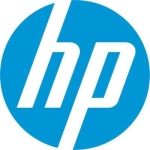We are a system integrator and I specialize in practically everything that is security-related. This is a product that we sell as part of Office 365, and rarely as a standalone solution.
Usually, if we have a customer with Office 365 and they need this type of solution then we increase the subscription to a point where it is included.
From the user's point of view, this is classic anti-virus software. From a management point of view, this product gives better control over endpoint devices because some processes can be stopped remotely. If you have a person that is watching over the system then they have a higher level of control over endpoints.
This is a cloud-based product so it is always updated by the end-user.
They have to improve the email scanning where email is coming from somewhere other than our private network. The scanning is slow when it is working with incoming emails. Often, I can see the email but the scanning process is not finished and I cannot open the attachment. In general, the scanning has to be faster.
This solution looks stable. Provided that Windows 10 is updated, everything is okay.
I have not been in contact with technical support in regards to this product. However, technical support for Microsoft products is always of bad quality. In my experience, if you cannot find the solution yourself then you will have a huge problem because it is not an easy task to have them understand and support you.
You can lose a lot of time explaining the problem before you receive something that works.
My advice to is look for a good support library and try to find the solution yourself. This means that you don't need to contact support.
We have worked with many different security solutions. For example, we are selling a Security Operations Center as a service. We implement EDR, Privileged Access Management, Identity Management, anti-fraud solutions, web application firewalls, database security, and more. We are working with practically everything in cybersecurity.
We are working with between 10 and 15 different vendors. Sometimes, this is too many, but it is useful to have information about each product, its quality, and how it compares to others. Two products that we are working with now are Cisco AMP and Carbon Black.
There is a free version of Windows Defender, although the paid version has EDR functionality. We sell this product as part of Office 365 and it is not expensive.
I have never touched this product. I'm just selling it, and I don't recommend it to anybody as a standalone solution.
I would rate this solution a five out of ten.












